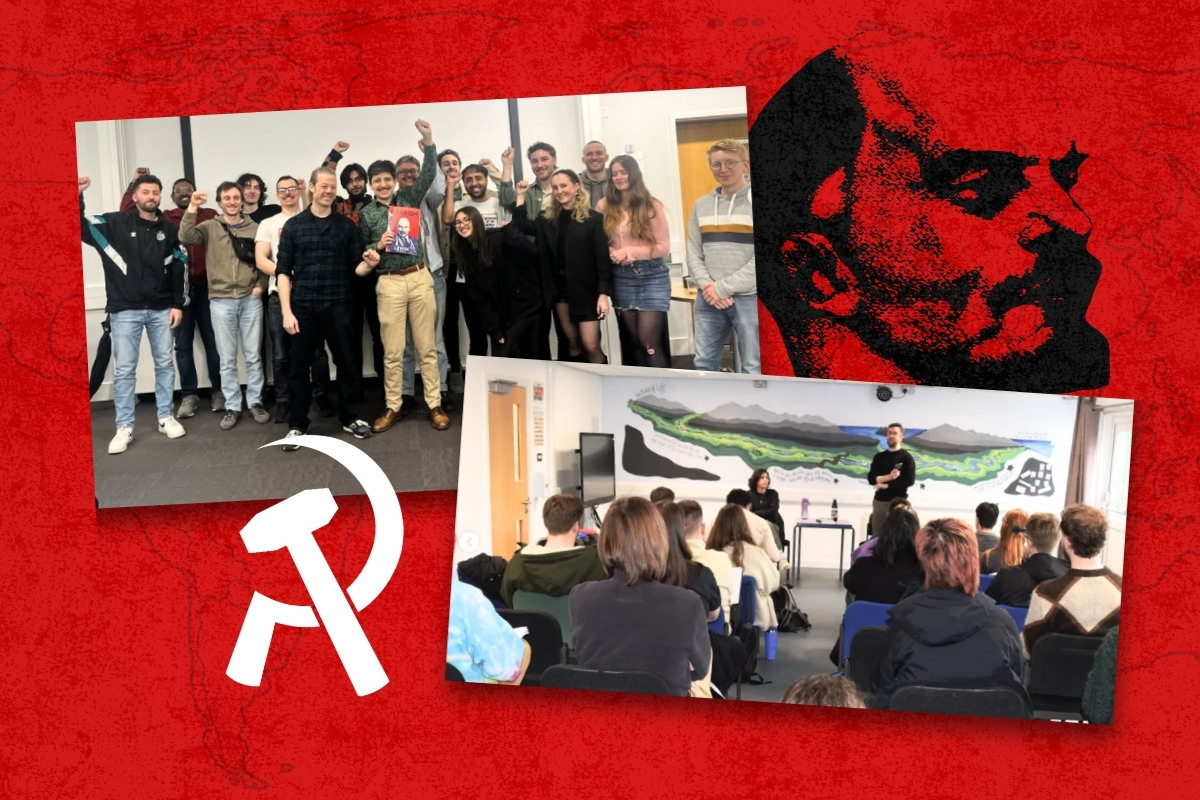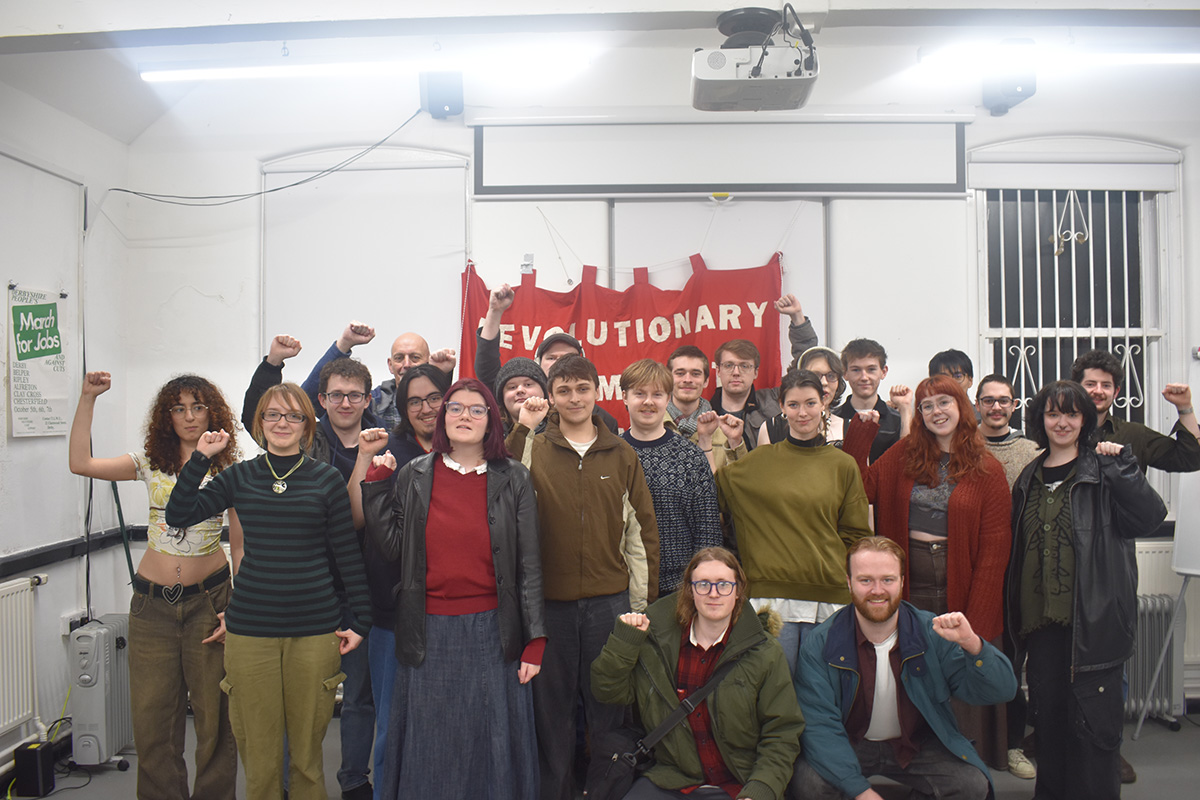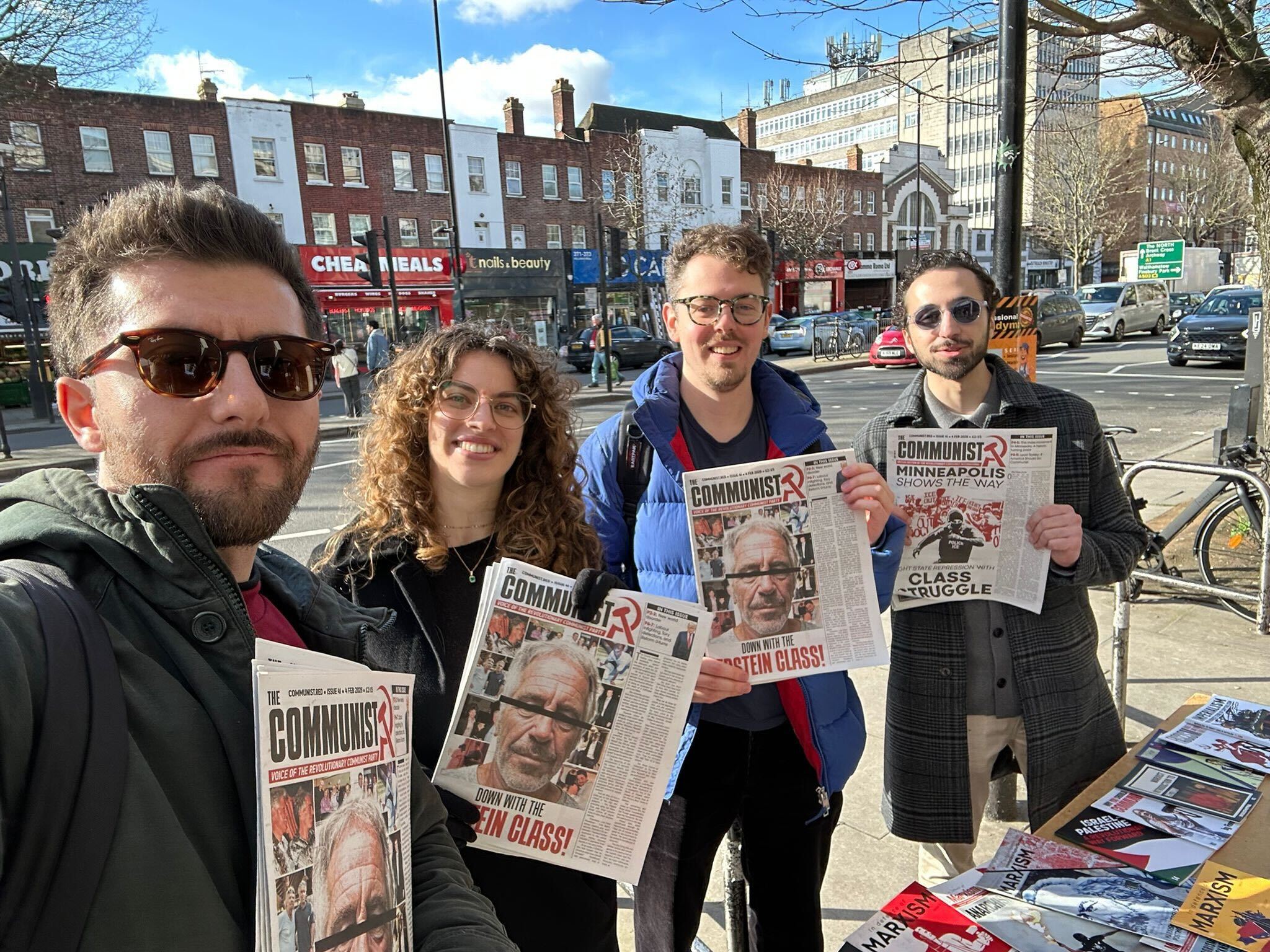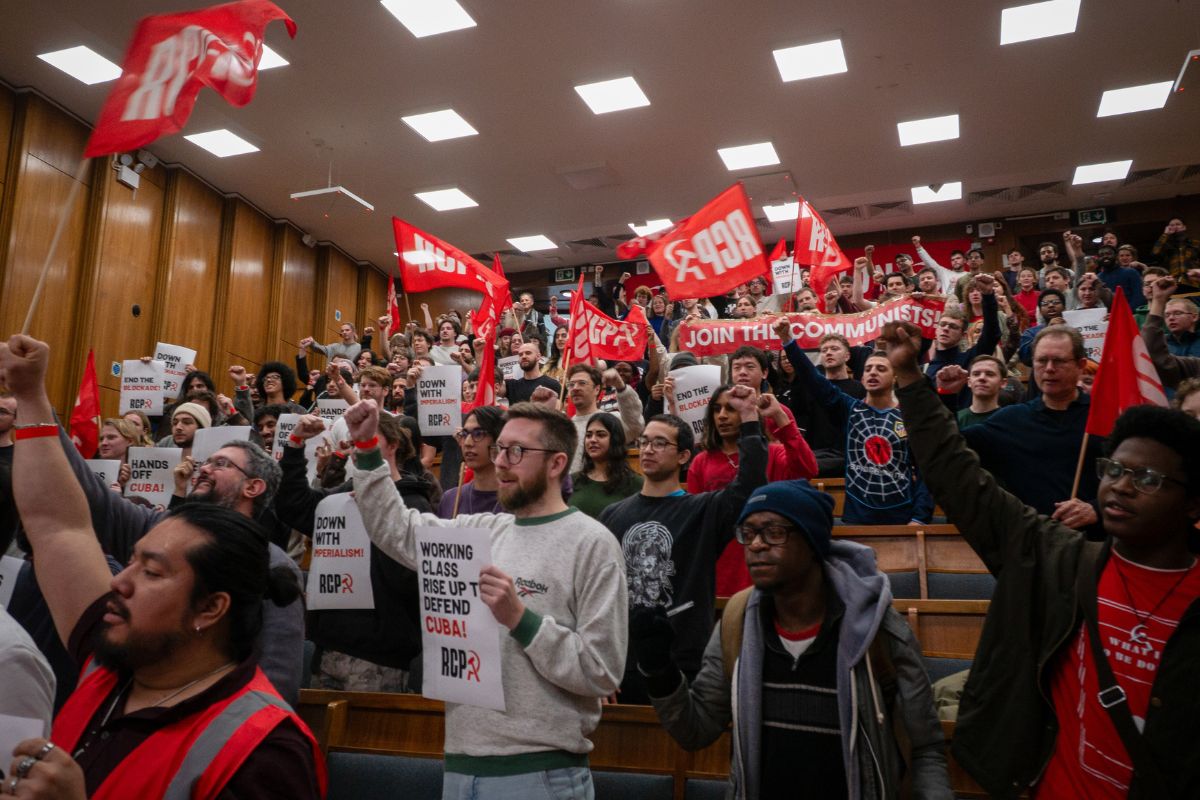Highlands School
The weekend of 29-30 March saw the first-ever Highlands Lenin School, where twenty-three comrades from Scotland and the North East of England gathered in the rugged hills of the Cairngorms for three packed days of discussion on the life and ideas of Lenin.
Following a delicious meal prepared by the comrades, we opened the school with a discussion on the relevance of Lenin’s ideas amidst the storm and stress of the present period.
View this post on Instagram
Based on both volumes of In Defence of Lenin, the four main sessions across Saturday and Sunday covered the building of the Bolshevik party, the 1917 October Revolution, the early years of the Soviet Republic and the Stalinist degeneration.
Each session took these events as a starting point for key theoretical lessons from the period. In this way, the experience of the Russian Revolution could be examined from every angle, and lessons could be drawn out for a new generation of revolutionaries taking part in the class struggle today.
Ruairidh, a new Edinburgh comrade said:
“It was really nice as someone who’s coming into this as a blank slate. We’re covering in a short period of time a lot about how the Bolsheviks came to power. I definitely took away a lot for further research.”
The richness of the weekend’s discussions was made possible by the dedicated study of the ‘course textbook’ In Defence of Lenin by all comrades.
View this post on Instagram
The sessions were far reaching and the discussions continued over into chats over meals and walks, often between comrades who hadn’t met before. The entire trip was an opportunity to share practical lessons, sharpen theoretical points and build camaraderie.
This enthusiasm was reflected in the numbers too. From the 23 comrades we raised over £1000 for our national fighting fund and sold a number of Lenin’s works including the new Selected Works on the National Question, “Left-Wing” Communism, Materialism and Empirio-Criticism, and many more pamphlets and copies of our theoretical magazine In Defence of Marxism.
Talking politics whilst exploring the landscape, cooking and eating together, and sharing rooms built strong bonds of camaraderie and party pride.
We are proud to have achieved a great event like this in Scotland, and to be members of the Revolutionary Communist Party. Forward to the 100 comrades in Scotland, forward to 2,000 members of the RCP!
View this post on Instagram
Birmingham
Comrades from across the Midlands gathered in Birmingham earlier this month for two days of high-level political education, aimed at training the next generation of revolutionaries.
Four full-time comrades travelled in to help guide discussions covering a broad range of topics, including world perspectives, philosophy, revolutionary history, economics, revolutionary tactics, and party building.
A key focus was the current world situation and how best to build the Party in response. We analysed the failures of left reformists to provide a genuine fighting alternative to capitalism, which has only opened the door for the rise of Reform.
This kind of analysis doesn’t emerge from thin air – it’s rooted in our philosophy. That’s why we devoted time to studying dialectical materialism, the foundation of any revolutionary party.
Comrades explored the evolution of materialist philosophy, from the ancient Greek materialists to Hegel, and finally Marx and Engels, who developed dialectical materialism by building on and surpassing the most progressive ideas of the past.
This philosophical grounding enriched our later discussion on the 1974 Ethiopian Revolution – examining why the military regime was able to take power, the nature of the state, and Trotsky’s theory of permanent revolution.
We also delved into Marxist economics, beginning with the earliest ideas linking value to labour, through Marx’s labour theory of value, and ending with a discussion of today’s complex world economy – rife with debt, credit, crises, and a growing turn toward protectionism.
This was complemented by a study of Ted Grant’s contributions during the post-war period, particularly his efforts to uphold theoretical clarity during the capitalist upswing.
We then turned our attention to the radicalisation of youth today. Many are seeking alternatives – whether through direct action, community organising, or other means of expressing their frustration with the system.
We discussed how we can reach these layers and win them over to revolutionary ideas.
The weekend concluded on a high note with a vibrant paper sale, bringing together comrades from cities across the Midlands – energised and armed with bold, revolutionary ideas.
North and West London
21 comrades from seven branches of North and West London gathered at the start of April for an aggregate meeting and Marxist school.
The meeting began with a discussion on Ukraine, which contextualized the current situation by covering Ukrainian national question from the beginning of the twentieth century up to the present day.
View this post on Instagram
The discussion highlighted how this question arose with the rise of the bourgeois nation state and the oppression of Ukrainians in the “prison house of the nations” that was Tsarist Russia.
Keenly aware of the long history of ‘Great Russian’ chauvinism and the oppression of Ukrainians, the Bolsheviks took a principled and sensitive approach to this question after the Russian Revolution.
Basing themselves on the Ukrainian’s right to self-determination, a class approach that would cut across sectarian and ethnic differences, and workers’ democracy to put power in the hands of the masses themselves.
This historic context served as solid grounds for analysing Ukraine’s ongoing conflict with Russia.
At the heart of world relations for several years, this inter-imperialist conflict in which Ukraine is used as small change by western imperialism in their dealings with Russia, clearly reflects the changing interests of US imperialism over the past period.
Having discussed the world situation through the Russia-Ukraine war, we moved to a discussion of our tasks as communists, which can be summed up in one word: Bolshevism.
Beginning with the Russian Narodniks in the 1870s, this discussion covered the lessons of the Russian Marxist movement through the 1902 split between the Bolsheviks and Mensheviks, the 1905 Revolution, the betrayal and demise of the Second International at the outset of WW1, and the great Russian Revolution itself.
Our emphasis on studying this history comes from the fact that almost every significant theoretical question of our movement presented itself in its sharpest manifestation during this period: combined and uneven development, opportunism, terrorism, democratic centralism, cadre development and party building, dual power, the permanent revolution, etc.
The final session of the aggregate included a report from our district treasurers’ caucus, underlining the district-wide approach that’s been taken to professionalising our finances
This was followed by three branch reports, highlighting how we built an entirely new branch in in Thames Valley, an area we previously didn’t have any presence in; preparing for a branch split and patiently building the next layer of leadership in doing so in Finsbury Park, the largest branch of our district; and the systematic yet flexible approach to cadre development and education taken in the Holloway Road branch.
We ended the day by voting on the new District Committee slate, formalising the district’s political leadership for the ensuing period.
In addition to raising the political level of the district, we were also able to raise money for the Fighting Fund through selling food, drinks and snacks that comrades had prepared, as well as literature from Wellred Books.
Additionally, comrades from new branches also got to meet each other and exchange experiences during the breaks and at the social afterwards.
Lastly, this meeting served not only as the first official coming together of our new district, but also as an important way to build for the upcoming RCP congress.






